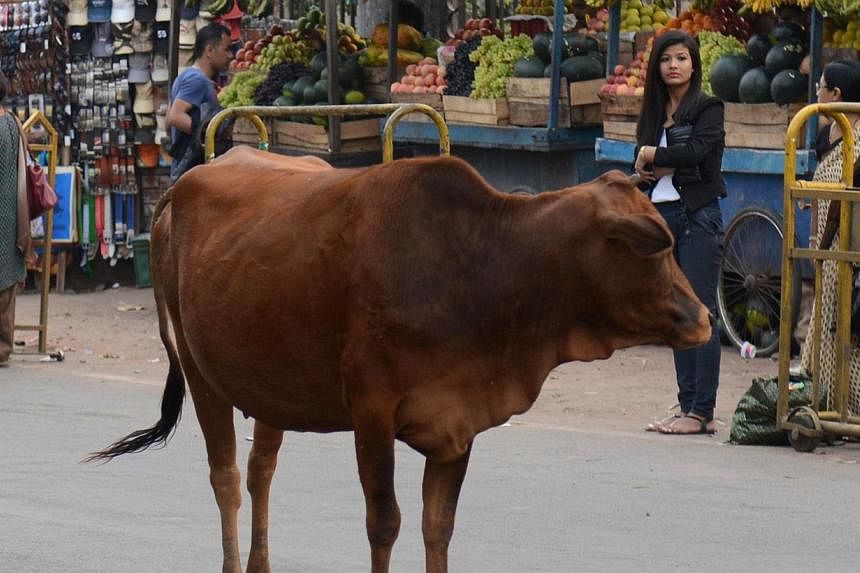When vets in the Indian capital are called upon to operate on a cow, they often find several kilos of plastic bags inside the animal's stomach. One cow made the papers in March last year when 4,000 plastic bags, ingested over several years, were found inside its stomach. A four-hour operation was needed to remove them.
Cows are sacred to Hindus. But that does not prevent many cattle owners from being frugal with fodder and letting their cows out onto the streets to roam and forage for scraps instead. When desperately hungry, the silly things eat plastic bags, which can mess up their insides.
Or take the way unproductive cows are transported to slaughter houses. According to Peta, a United States-based animal rights organisation, many arrive dead or maimed after long journeys packed in trucks that are often left standing for hours in the insane heat of an Indian summer.
This pretty much encapsulates the Indian stand on animals, even venerated ones like the cow: compassionate in theory but often callous in practice.
Bullocks in the fields are routinely tortured. Horses used in wedding processions are ill-fed and over-worked. According to the Wildlife Protection Society of India, elephants used in temple ceremonials or for tourist purposes are also mistreated on occasion.
And yet, in one area of animal rights - animal testing in cosmetics - India leads the way in Asia. Last year, the government banned the testing of cosmetics on animals in India, and later extended the ban to detergents.
Animal rights activists were pleased, but pushed for more. They argued, logically, that the next step was to ban the import of cosmetics that had been tested on animals.
Peta says the government is now ready to approve a measure to do precisely that, which would make India the first cruelty-free cosmetics country in Asia.
The move is laudable and comes close on the heels of another coup for animal rights - the ruling on May 7 by the Supreme Court that bulls cannot be used in Jallikattu, a hugely popular sport in Tamil Nadu, South India. Men compete to grapple with a bull's horns and stay on the beast long enough to win a prize.
After a temporary ban, New Delhi had been planning to restore the sport, but the Supreme Court said, rather movingly, that "all living creatures, including animals, have inherent dignity and a right to live peacefully and a right to protect their well-being".
"Dignity", yes, indeed. The only odd thing about India's enlightened measures regarding animal rights is how uncomfortably they sit with the total lack of dignity in living conditions for Indian human beings.
There is no dignity in the rat-holes of urban slums where tens of millions of Indians live. Or in the fact that the sole toilet in the slum can be shared by 100 families, which forces even the elderly to queue for a long time.
Statistics collected last year for a government sanitation campaign show that open defecation is practised by more than half of India's population of 1.2 billion.
That is why this lovely concern over banning cruelty towards animals jars somewhat. If only the various governments that once ruled India had been so concerned about the basic dignity of the country's citizens and their right to clean drinking water, homes, electricity, hospitals and schools.
But India always likes to take up the easy tasks. Banning the import of cosmetics that have been tested on animals is easy, requiring merely a signature. Building toilets for millions takes hard, boring work and long-term commitment.
Animal rights activists are right to believe that they cannot wait for India to improve the way it treats its people before it campaigns on behalf of animals. That would be a very long wait indeed - when will employers ever stop using young children and their nimble hands to do eyesight-destroying embroidery or assemble fireworks in poky, airless, suffocating sweatshops?
Still, it would be nice if there were some congruity between the measures taken to protect animals from cruelty and the measures taken to protect human beings from cruelty.
At present, there is no law, for example, to protect slum dwellers against having their shanties bulldozed by the municipal authorities. Yet, it is against the law in all municipalities across India to beat or drive away street dogs.
The writer, a former BBC journalist, is a freelance journalist based in New Delhi.

